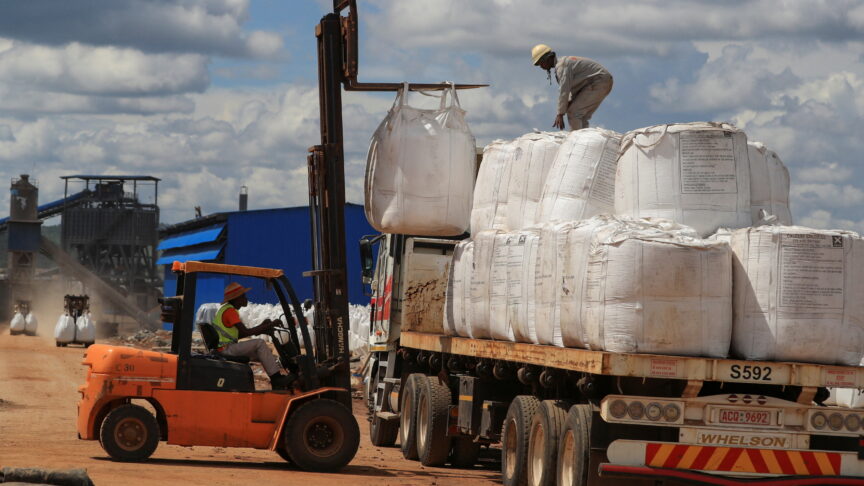Top ten ECFR reads from 2018
2018 was a big picture year for our readers, or at least their worries expanded. In 2017, our readers’ eyes were clearly turned to Russia—seven out of the top 10 most read pieces on our website were focussed on Russia. This year that number is down to four, but we suspect that this reflects a broadening of interests rather than anyone feeling better about Russia.
Overall, we see a desire for big picture explanations in our top 10 this year. The situation in Europe today is unsettled enough that our readers seem to yearn to return to some fundamental questions. They are trying to figure out what the future will look like for Europe, how international relations are changing in the current climate, and how to think of the world order in a time of increasing geopolitical competition.
From January through December – some things we saw coming, but not all – read our top 10 from the last 12 months starting from the bottom. Happy reading!
10. The United Nations of China: A vision of the world order
François Godement, Moritz Rudolf, Marc Julienne, Marie-Hélenè Schwoob & Kata Isenring-Szabó, 12 April
China’s participation in the United Nations system is often viewed through the lens of various single issues. But within China, there is sophisticated thinking and hints of policy debate going on about the UN, its reform process, the various stands taken by other member states, and—to some extent—China’s present and future role in the organisation.
9. Can Europe save the world order?
Anthony Dworkin & Mark Leonard, 24 May
The liberal rules-based order is under threat from both established opponents and former supporters. Europe has a vital interest in the preservation of a rules-based system, but it needs to rethink the elements of that order for a new global environment.
8. The discreet charm of hypocrisy: An EU-Turkey Power Audit
Asli Aydintasbas, 23 March
Among European elites, there is still substantial support for a strategic partnership with Turkey – albeit not for advancing the beleaguered accession process. Europe needs to find new channels through which to engage with Ankara.
7. Winning the normative war with Russia: An EU-Russia Power Audit
Kadri Liik, 21 May
The EU and Russia have become locked in an open battle over the norms of international conduct. This is a clash between liberal universalism and authoritarian statism; the liberal international order and realpolitik. The path to winning the overall normative war will not go so much through countering Russia as through improving Europe’s resilience and reinvigorating the Western model.
6. Alone in the desert? How France can lead Europe in the Middle East
Manuel Lafont Rapnouil, 10 April
The Middle East is at a key stage for France’s foreign policy. It is bidding to prove its credentials as an international power, punching above its weight, and demonstrating the independence that is so important to the French sense of place in the world. Emmanuel Macron’s ardent pro-Europeanism presents an opportunity for France, and for Europe. But France must move on from its “reassurance” approach and better embed its leadership in concerted European cooperation.
5. Blue China: Navigating the Maritime Silk Road to Europe
Mathieu Duchâtel & Alexandre Sheldon Duplaix, 23 April
China’s Maritime Silk Road is about power and international influence, but Europeans should not overlook the importance of the development of the country’s blue economy, which already represents 10% of China’s GDP. Europeans should strengthen their contribution to maintaining a strategic balance in the Indo-Pacific region and uphold their vision of a rules-based maritime order.
4. Ukraine on the brink of kleptocracy
Gustav Gressel, 5 January
Europe needs to confront Ukraine’s leadership sooner rather than later.
3. Strait to war: Russia and Ukraine clash in the Sea of Azov
Andrew Wilson, 2 October
In his prophetic article from October, Andrew Wilson predicted that new Russian naval activities around Crimea could presage a new, maritime front in the war in eastern Ukraine.
2. How to save Europe
George Soros, 29 May
George Soros’ keynote speech at ECFR’s Annual Council Meeting in Paris on 29 May outlined the causes of the European Union’s current “existential crisis” and steps that can be taken to save the EU from this predicament.
1. Do the western Balkans face a coming Russian storm?
Mark Galeotti, 4 April
The confluence of a rising series of pressures in the Balkans, as well as the attention of Russian Security Council secretary Nikolai Patrushev – who has taken on the region as a special responsibility – suggests the next year will see the launch of a renewed Russian campaign in the Balkans.
The European Council on Foreign Relations does not take collective positions. ECFR publications only represent the views of their individual authors.


